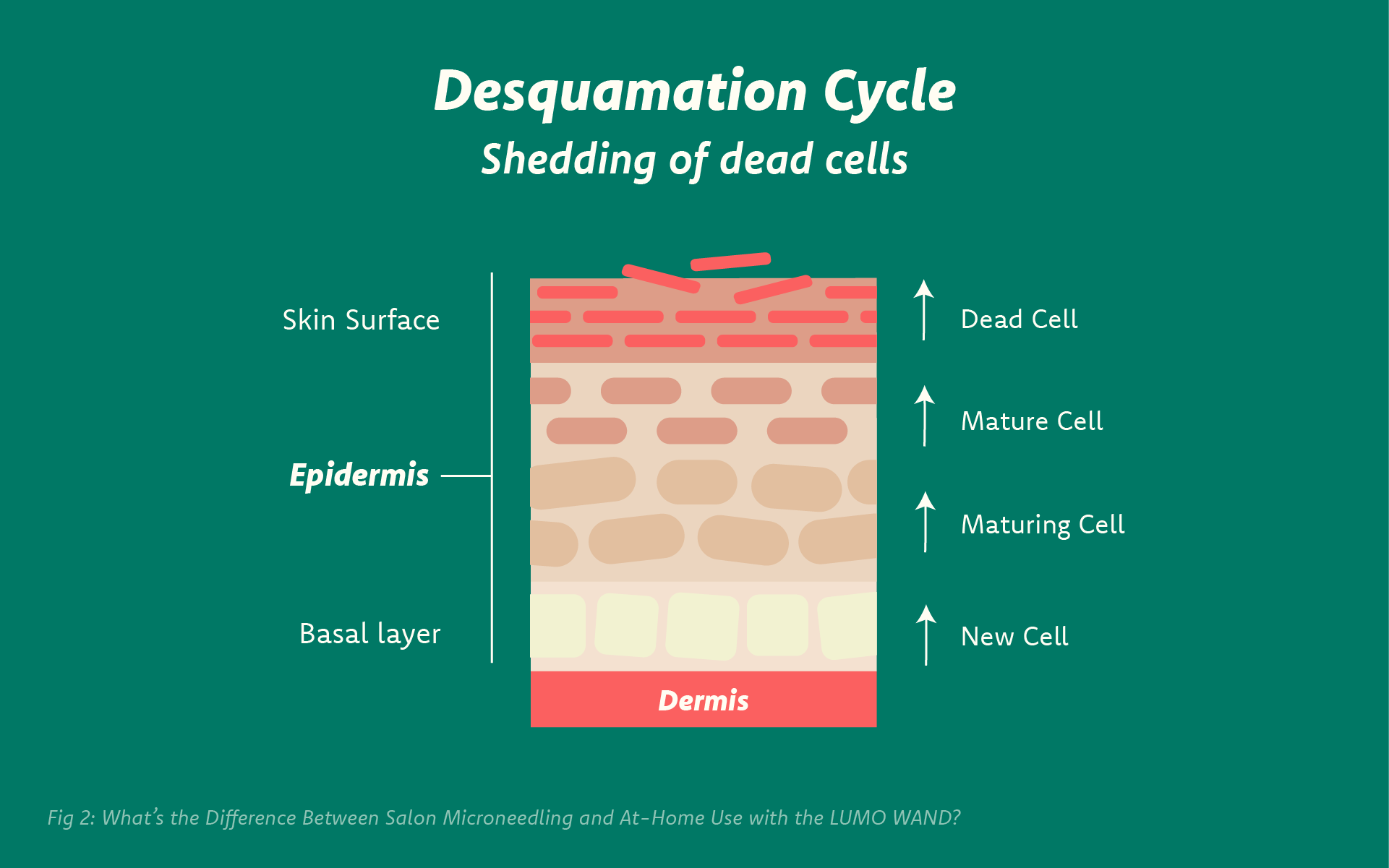The SKINDEX
Skincare Dictionary
Desquamation

Desquamation is the natural process your skin uses to shed old, dead cells from the outermost layer (the stratum corneum) to make space for newer, healthier cells underneath. This cycle is essential for maintaining smooth, radiant skin and forms a key part of your skin’s renewal process.
Here’s how it works: Skin cells are created in the deeper layers of the epidermis, where they mature and migrate upwards over time. By the time they reach the surface, these cells are flat, dry, and no longer alive, but they still play a protective role as part of the skin barrier. Eventually, enzymes break down the bonds holding them together, allowing these old cells to slough off naturally.
This invisible, ongoing process typically takes about 28 days in healthy, youthful skin — but it can slow down with age, sun exposure, or certain skin conditions. When this happens, dead cells may build up, leading to dullness, clogged pores, and uneven texture.
Why does this matter for skincare? Understanding desquamation helps explain why regular, gentle stimulation — like microneedling, exfoliation, or LED therapy — can support skin renewal. By encouraging cell turnover, you’re helping your skin maintain balance and vibrancy.
